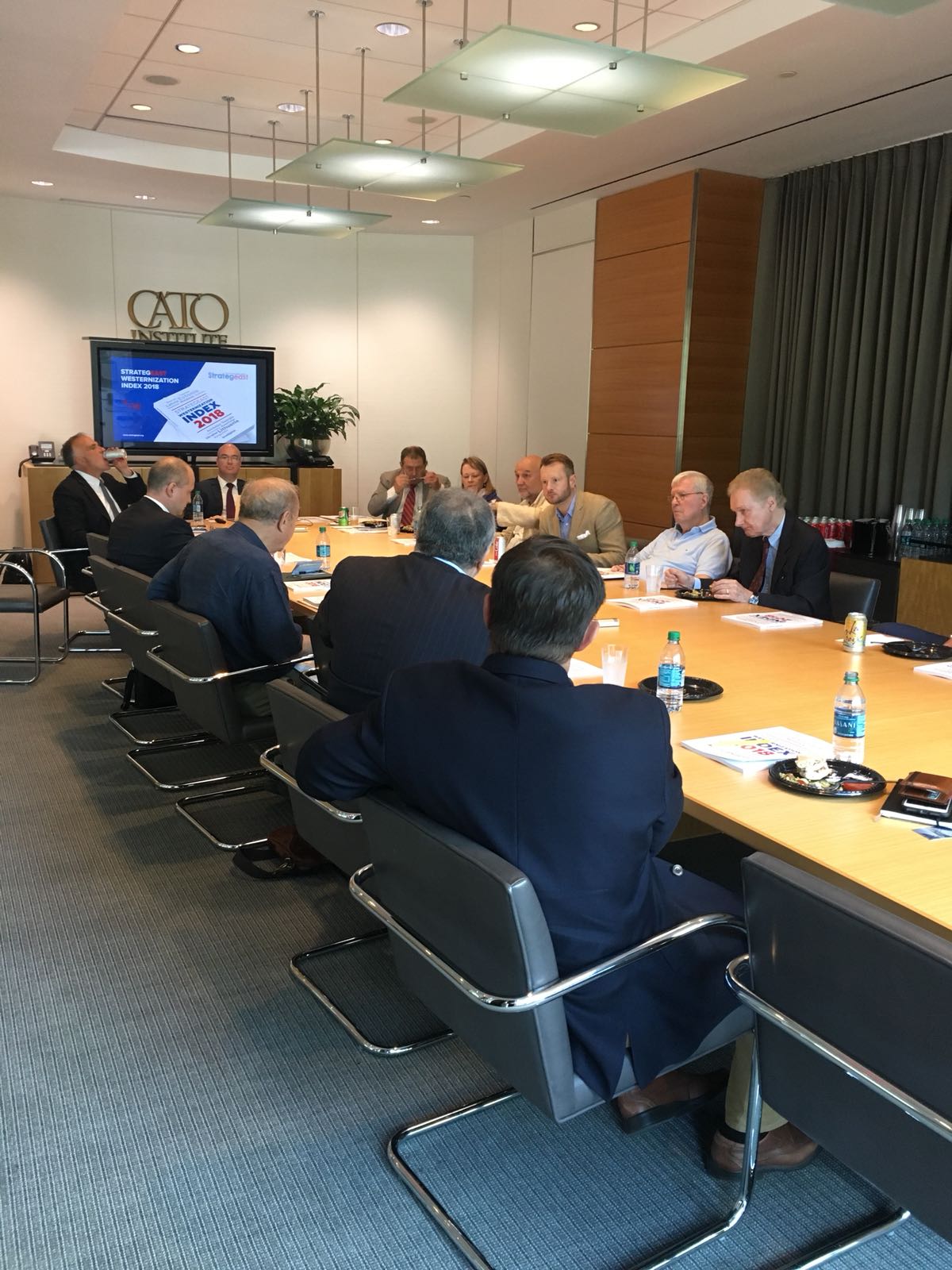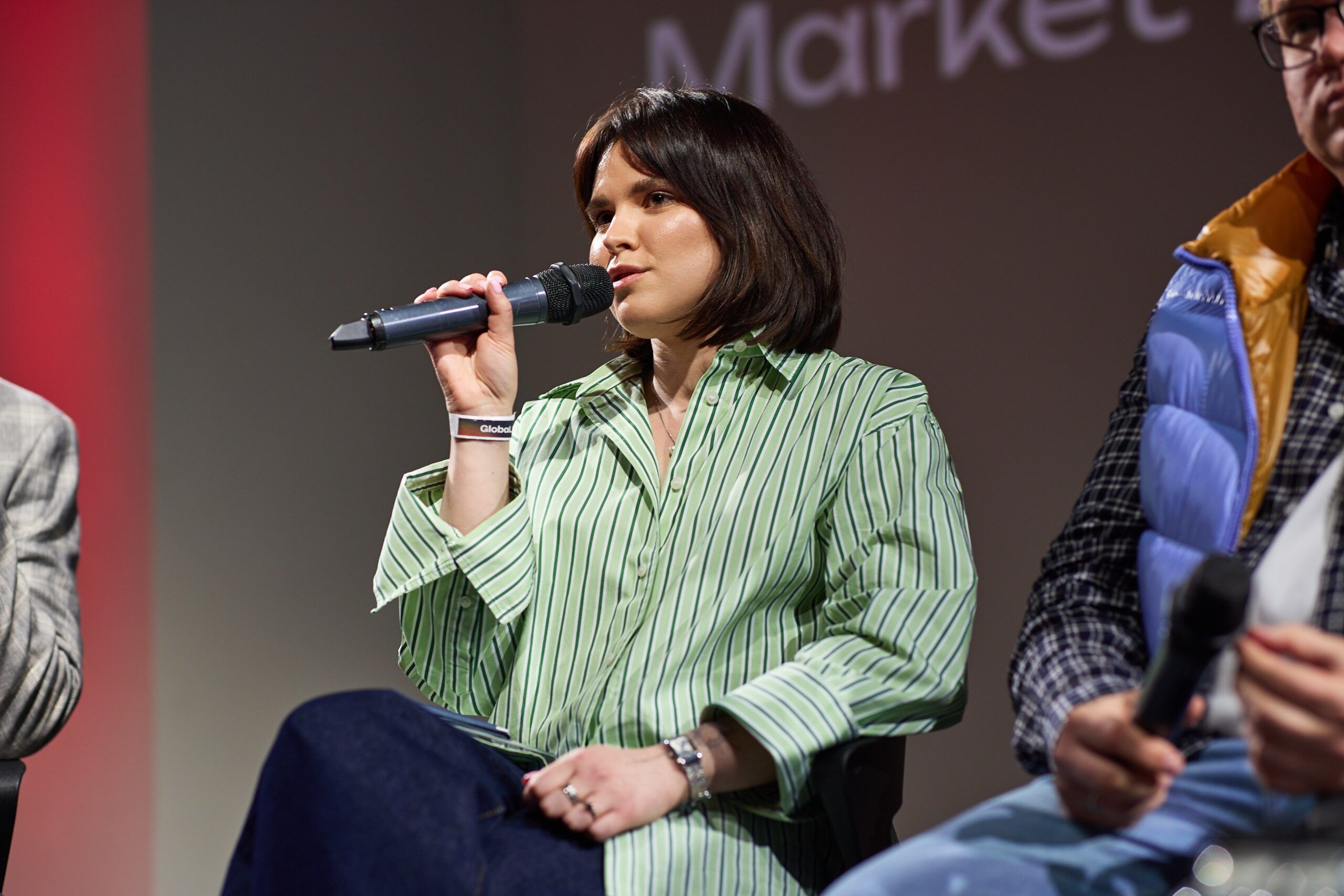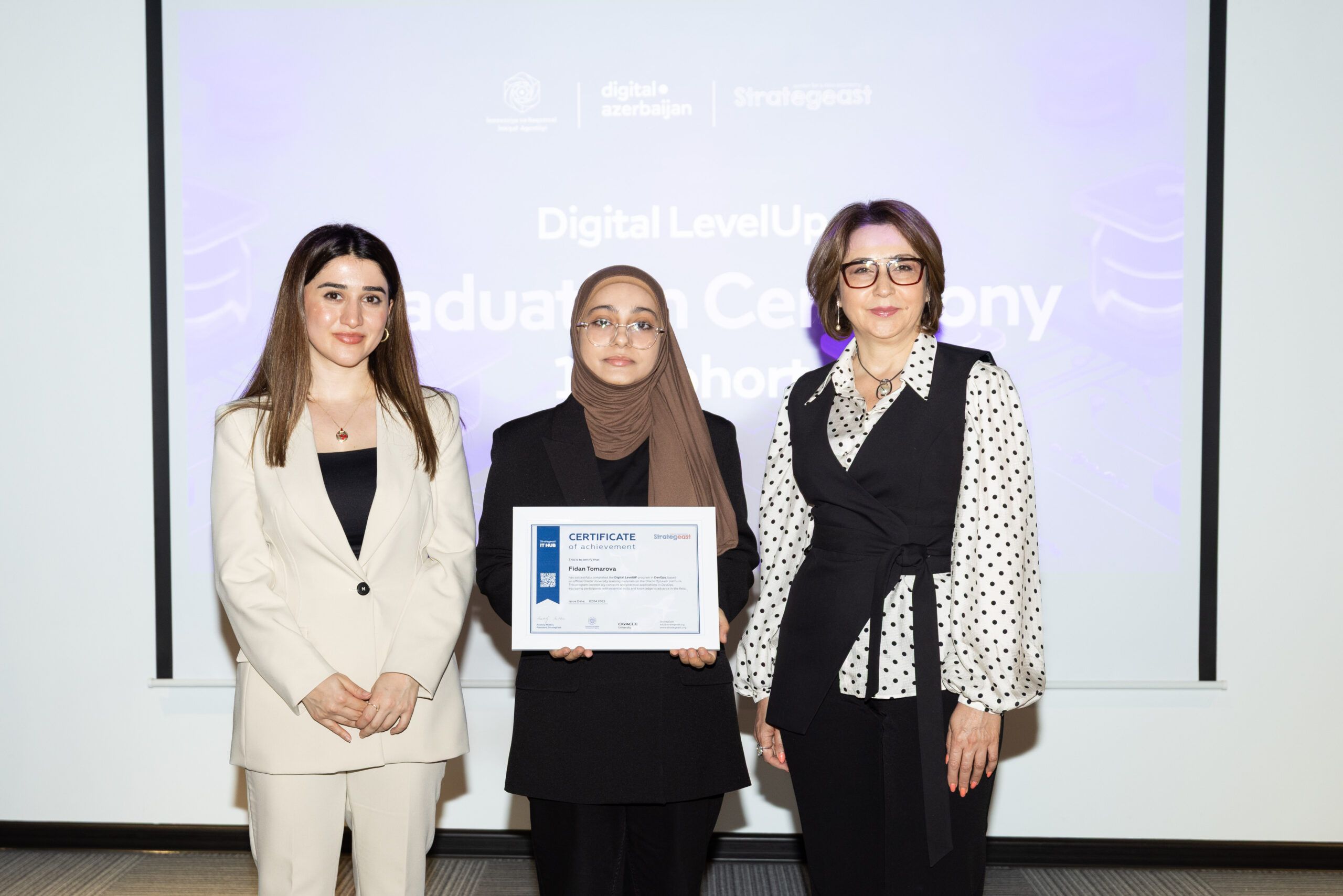StrategEast Founder and President Anatoly Motkin presented the center’s first annual Westernization Index at the Cato Institute in Washington, D. C.
First of all, the Institute members were interested in the range of methodology used in the Index, and its methods of application. Apart from members of Cato Institute the event was attended by Eric Hontz (CIPE), Temur Iakobashvili (former State Minister for Reintegration of Georgia), Matthew Murray and Mary Burce Warlick. Considerable attention focused on the section of presentation on critical dissimilarities in PSNR countries’ westernization uncovered in the research. In particular, the following cases were provided.
The business climate in the region is extremely diverse: from Estonia, one of the top 6 countries in the world in the Index of Economic Freedom, to Turkmenistan, ranking 174th out of 178 countries in the same rating. In terms of business climate, the EU Member States trio (Estonia, Latvia, and Lithuania) is joined by Georgia, which even outscored Latvia and Lithuania in the Doing Business Index.
69% of Ukraine’s citizens have never crossed the country’s borders. Although Belarus is among the top seven countries with the largest number of Schengen visas issued, 59% of Belarusians have not left their country at all over the past three years. At the same time, 3.5 million visits abroad originated in Estonia – considering the country has a population of 1.5 million people, this is more than one trip abroad per year per person.
Following the presentation and discussions, one of the guests, professor Daniel Schneider from American University underlined ultimate practical value of the event. “Having attended dozens of Washington discussions on issues concerning political and economic development, it was exhilarating for me to participate in an all-to-rare discussion focusing on meaty “big picture” matters, such as the role of information technology in promoting economic development and how culture can advance the rule of law. A feisty and informative intellectual treat, yes, but one that also considered the practical application of big ideas”, said Prof. Schneider.
The Cato Institute is an American libertarian think tank headquartered in Washington, D.C. It was founded as the Charles Koch Foundation in 1974 by Ed Crane, Murray Rothbard, and Charles Koch, chairman of the board and chief executive officer of the conglomerate Koch Industries. In July 1976, the name was changed to the Cato Institute. Cato was established to have a focus on public advocacy, media exposure and societal influence. According to the 2014 Global Go To Think Tank Index Report (Think Tanks and Civil Societies Program, University of Pennsylvania), Cato is number 16 in the “Top Think Tanks Worldwide” and number 8 in the “Top Think Tanks in the United States”.




